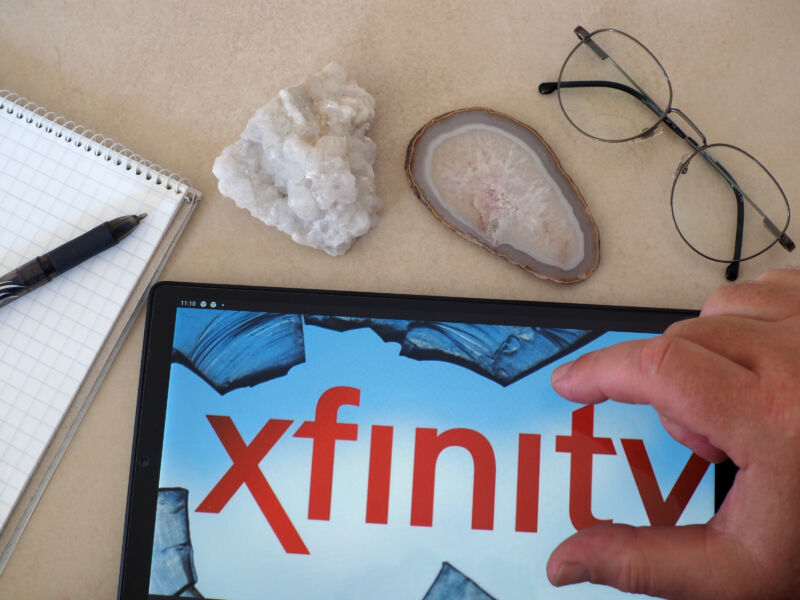Triple play (with ads) —
It’s $25 or $10 cheaper than separate subs, but note the plans you’re getting.

Enlarge / Comcast/Xfinity’s new bundle of streaming services harkens back to a much earlier era.
Getty Images
Disaggregation is so 2010s, so Comcast, facing intense pressure from streaming services, is bringing back the old bundle-it-up playbook. Its previously announced bundle of Netflix, Peacock, and Apple TV+, only to Comcast/Xfinity cable or broadband subscribers, will cost $15 per month. It’s a big discount on paper, but the fine print needs reading.
The “StreamSaver” bundle is considered a “companion to broadband,” Comcast’s CEO David Watson said at a conference today, according to Reuters. It cuts more than 30 percent off the separate price of certain tiers of each service and can be bundled with Comcast’s own “NOW TV,” which has 40 other cable channels streaming. The service is due out May 29 in the US.
Take note that Comcast’s bundle gives you Netflix’s “Standard with ads” plan (which also locks you in at “Full HD” resolution and two devices), Peacock’s “Premium” (which also has ads), and Apple TV+, which has made some recent moves toward an advertising infusion. The things that people liked about streaming—being able to pick and choose TV and movie catalogs, pay to avoid advertisements, and not be beholden to their cable company for entertainment—are effectively countered by StreamSaver. The lines get blurrier, and the prices go up.
If you were already set on paying for the cheapest versions of each service and don’t mind not being able to cancel any one of them once you’re tired of it, $15 is indeed a savings. Doing the math earlier this month, Ars’ Scharon Harding totaled up all three networks at $39.47 per month with no advertising, or $24.97 per month with ads.
Tacking streaming services onto your Comcast subscription would help the company out, as would signing up, especially for StreamSaver. Comcast lost nearly 500,000 cable TV subscribers in Q1 2024, down to 13.6 million subscribers, compared to 16.1 million at the end of 2022. Peacock, the streaming service it owns, has not made money since its 2020 launch and lost $2.7 billion in 2023.